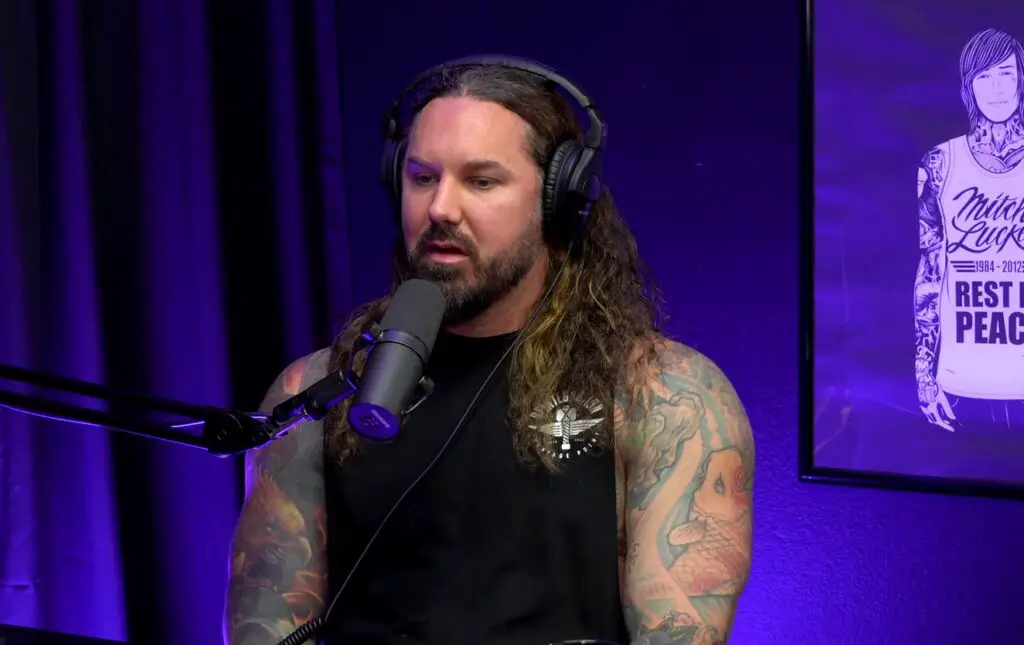
Once he was behind bars, Tim Lambesis began to do some serious thinking about his life; reflecting on the choices that led him there and considering how he might have altered things if given a second chance. After serving two years of a six year prison sentence, Tim was finally released on parole in 2016.
In a new interview with “The Garza Podcast,” hosted by SUICIDE SILENCE guitarist Chris Garza, Lambesis has reflected on having solicited murder by hiring a hitman in 2013 to try to kill his now-ex-wife.
“My thinking was so isolated in my own mind and disconnected from my support system that I didn’t really even fathom or realize how much I had lost myself and the core of who I really was,” he said. “It’s, like, I was this one person for most of my life, and then for this period of time, I had this very isolated, different type of mindset, and then have since returned to being much of who I was in the earlier part of my life plus, of course, the added perspective of everything I went through.
Lambesis continued: “I don’t really know how to describe it. I lost myself, I lost my way, and I sat there in a cell being, like, ‘How did I become this person?'” he continued. “It kind of blew my own mind. And as the mental cloud, the fog went away and I could see clearly, there are so obviously a thousand better ways that I could have gone through a divorce or a thousand better ways that if I wanted to be close with my family or if I felt that burning of a father who felt…
“I can talk about, vaguely speaking, any father who loses his children, there’s a burning feeling of just, like, ‘I’ll do anything to fix this or to make this right or to maintain this relationship.’ But just ’cause you feel like you would be willing to do anything to maintain what matters to you the most in the world doesn’t mean you show that those are your best options. And I saw clearly sitting there thinking in a cell, ‘Wow, I could have handled this a thousand different ways,’ and the fact that in my mindset I thought at the time this was the best way to handle the situation, it blew my own mind. It’s, like, how did I even think that? It just was shocking. And there’s really no defense or no way to take away what I did other than that, thankfully, there was actually no true physical harm of any kind.”
“Knowing that I’m relatively young and I have the rest of my life to demonstrate to myself, beyond other people, that that is a very isolated, dark thought process in my life,” Tim added. “And if that is an isolated, dark thought process, over the course of 30. 40, 50 years, you’ll see that. But I can’t prove that to anybody, coming out of prison, like, ‘Hey, guys. I’m changed. I’m good.’ They have to say, ‘Here’s who you were for 32 years. Here’s this dark period of your life. And here’s who you are for the next 20…’ I have at least 20 years till most people in this world are willing to be, like, ‘You know what? Maybe he really did change. Maybe incarceration really did…’ In one of those rare instances where incarceration actually helped an individual; maybe I’m one of those rare cases. But I have 20 years to prove that. So I’m not in a rush other than to be myself and let people see that slowly over time.
You can watch full interview below.